Moments after firing a gun for the first time, Alicea Burton proudly displayed the result of her marksmanship: a human silhouette target perforated with more than two dozen 9 mm holes.
“It was easier than I thought,” the 30-year-old from Chicago’s Bronzeville neighborhood said after emerging from an Oak Forest gun range. “The sound of the bullets did throw me off, but after a while it just became normal so it didn’t scare me.”
Burton, who was pursuing a concealed carry license, is among a surge of African Americans who are taking a new interest in firearms.
A gun industry survey taken in 2020 — a record year for sales — noted that Black customers accounted for the largest increase of any racial group. A Northwestern University study found that while white people bought more firearms overall last year, African Americans made up a disproportionate number of first-time gun buyers.
The Tribune sought demographic information on firearm ownership identification card and concealed carry license holders from the Illinois State Police in January, but the agency said it could not provide the information by press time.
In 2017, the Pew Research Center released a study that captured some of the complexities of gun ownership. Only 1 in 4 Black people reported having a gun, compared to 1 in 3 white people, and they were far more likely to believe that more guns mean more crime.
Autry Phillips, head of the violence prevention group Target Area Development Corp., said African Americans are already disproportionately affected by gun violence. Putting more firearms, even legal ones, into Black communities could result in gun theft, accidental shootings and tragedy, he said.
“We’re dealing with enough deaths in our community,” he said. “Why do we keep adding guns?”
GOPUSA Editor’s Note: Please keep in mind that this is a mainstream media story which may or may not contain politically biased language. The source of the story is in the dateline. We publish the story for the purpose of informing our readers.
What is GOPUSA? Read our About Us page to find out.
New organizations dedicated to Black gun ownership are nonetheless emerging, aiming to provide a welcoming environment to newcomers and counter long-standing negative images of Black people with firearms.
“It’s accepted that a white man in America with a gun is seen as a patriot, while a Black man with a gun is seen as a criminal,” said David Hayes of the 761st Gun Club of Illinois, a firearms education group based in the south suburbs. “It doesn’t make Americans want to get behind that.”
Some Black Chicagoans told the Tribune that rising crime and social upheaval drove them to seek out firearms for their own protection.
The biggest spikes in gun buying last year came in March, during the early days of the pandemic, and in June, when protests over the police killing of George Floyd boiled into violence.
Though most guns were bought by people who already had at least one, about a quarter were bought by first-timers, according to the Northwestern study. Those new owners were more likely to be Black.
Given the timing of the second surge, James Druckman, a Northwestern political science professor who worked on the study, said many purchases were likely driven by concern over police violence. But Mark Oliva of the National Shooting Sports Foundation, a trade group whose own survey found an increase in Black gun buying, said he believed the increase was motivated by more people worrying about personal safety after riots and increased crime.
“It became very apparent to people that you have to be your own first responder,” he said.
Yvette Farmer, 58, who lives on the South Side of Chicago, said she bought a 9 mm pistol last year because of the “craziness” happening in the city.
“Bullets don’t have names,” she said at a concealed carry class in the Chatham neighborhood. “They can go anywhere. If you learn how to use something you’re better prepared.”
Two dozen students in the class handled replica pistols and practiced their grips, shooting stances and the fine points of armed confrontation.
“Look through that gun, look through it,” instructor Mike Brown, a former police officer, commanded as the students extended their faux pistols toward pretend attackers. “Imagine that that deadly threat is in front of you and you are trying to stop that threat. Don’t look at the gun — look through the gun at the threat.”
Brown said students come to him because of fear of crime (especially carjackings), as well as concerns over racist violence and unrest. But he added that Chicagoans who arm themselves should be wary of a city government that is aggressive about seizing guns.
For example, he said, people with firearm owner identification cards are frequently arrested for failing to also have a concealed carry license (both are required to carry a gun). He chalked up the omission to a lack of education, but said the consequences seem to land most heavily on Black people.
“When there is a politically driven (effort) to eliminate guns, you’re going to see overreaches in how the police tend to treat a certain class of citizens,” he said. “And that’s definitely what I’m seeing here.”
Philip Smith, founder and president of the National African American Gun Association, said Black gun owners face a double standard in their dealings with authorities. He said their concealed carry license applications can be turned down for no good reason — an allegation that was the subject of a 2014 lawsuit in Illinois — and that police often treat them with undue suspicion.
“We have to prove our worthiness at all times,” he said. “You get a double check on everything to make sure you’re a good guy. We’re not treated as equal.”
Kourtney Redmond, president of the 761st Gun Club — named after a distinguished World War II tank battalion comprised of Black soldiers — said the disparities extend all the way to finding a place to practice marksmanship.
Chicago banned gun ranges until a lawsuit, filed by a Black plaintiff, forced it to back down. But since that federal appellate court decision in 2017, the city is still without a range. Redmond said his group is looking for property on the South or West sides that might make a suitable location.
“How are people supposed to get education on firearms if they can’t even go to a gun range in their own city?” he said. “They have to go to the suburbs. A lot of times Black people don’t always feel welcome there.”
On top of institutional unfairness, Black gun ownership has also been inhibited by painful personal experience. The Pew survey found that Black people are far more likely than people of other races to have been threatened by someone with a firearm, or to know someone who had been shot.
Hayes, Redmond’s fellow gun club member, said his wife’s brother was slain by a police officer, and that other relatives had also been killed with firearms. She didn’t like the idea of him getting a gun, but with “compassion, patience and understanding,” he said, he eventually changed her mind.
He said a similar approach could work with other people who have had traumatic experiences with guns — as could a message that carrying a firearm might prevent future bloodshed.
“Typically, bad guys don’t look for fights,” he said. “They look for victims. And if a bad guy understands that his potential victim is armed as well as or better than him, typically he will rule that individual out as his target.”
___
(c)2021 the Chicago Tribune
Visit the Chicago Tribune at www.chicagotribune.com
Distributed by Tribune Content Agency, LLC.
—-
This content is published through a licensing agreement with Acquire Media using its NewsEdge technology.



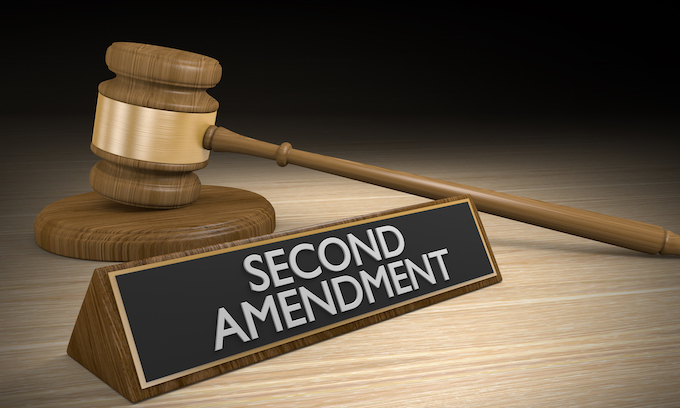
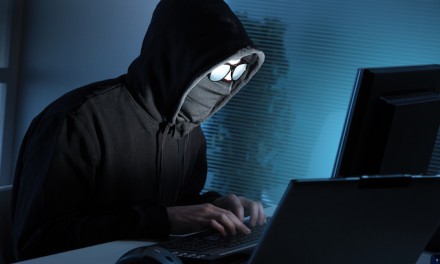
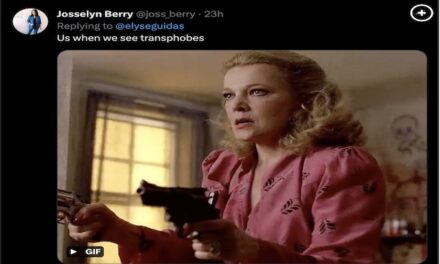
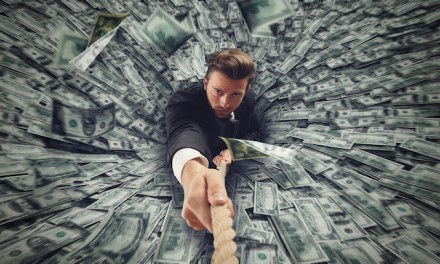
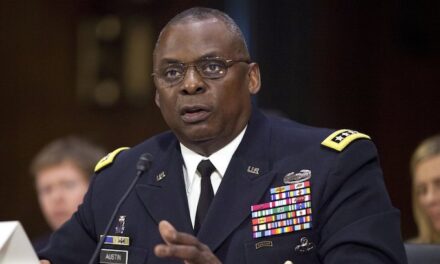







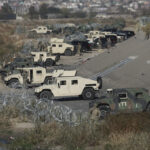
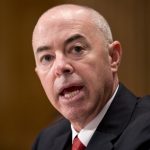
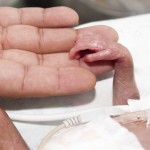

Economist John Lott who has studied gun ownership most thoroughly authoring several books concludes that if guns were removed from blacks in America, gun crime would drop to European and Canadian levels. US blacks are presently killing each other at 5000 or so a year. That’s more murders in a single year than lynchings during the entire period of slavery and John Crow. No wonder blacks and white libs keep going decades and centuries back in the past when blacks were victims instead of looking their present self-destruction in the face.
Law abiding citizens of all skin colors and no criminal record have the right to buy a gun under the Second Amendment and they should do it.
No one can depend on the police for protection anymore no matter where they live. We have to be prepared to defend ourselves. I see this as left leaning people waking up to the understanding that they have to stop believing the gun control lies of the Left and take control of their own safety.
AND when cops repeatedly get told to stand back/stand down etc, and NOT PROTECT US, you’d be a FOOL TO only trust in THEM TO Protect you… PERIOD.
“Given the timing of the second surge, James Druckman, a Northwestern political science professor who worked on the study, said many purchases were likely driven by concern over police violence”. Another airhead Professor, at one of the communist Universities, perpetrating the lie, that the police are hunting down and killing millions of blacks. The only thing the blacks have to worry about, in the inner cities, are criminal blacks, shooting them. Nice try Professor Airhead!!!!!!!!
At this point, i wonder, are there anything BUT UTTER AIRHEADS at all these colleges???
Maybe Chicago will finally be cleaned up. It’s a shame the Politicians have left the job to the citizens.
Best policy ever initiated in the US was Giuliani’s “Stop & Frisk” policy in NYC – turned the city around as far as deadly crime was concerned. You were Ok if you had the concealed carry permit, otherwise you could expect jail and gun confiscation. Chicago really needs to do that, especially in those high crime areas – otherwise it strikes me as racist to not do anything about their never-ending gun violence.
I am a white, male, veteran. I am proud of the Blacks who step up to defend themselves and their families. I don’t see them as criminals, I see them as patriots using one of our God-given RIGHTS.
Each one reborn a conservative.
LETS hope so!
I remember when they taught history in schools. When we covered the holocaust and were shown the grainy black and white photos of human skeletons, bodies stacked like cord wood, human bones protruding from ovens and other examples, one wet eyed girl asked our teacher: “Knowing they had nothing to lose, why didn’t the Jews fight back?” To which our teacher-and not a liberal indoctrinator replied: “They had nothing to fight with. Hitler ensured no citizens had private guns.” The democrats understand this.
And that is WHY Schools no longer TEACH history.. Cause they don;t want the kids KNOWING WHY the dems want our guns.